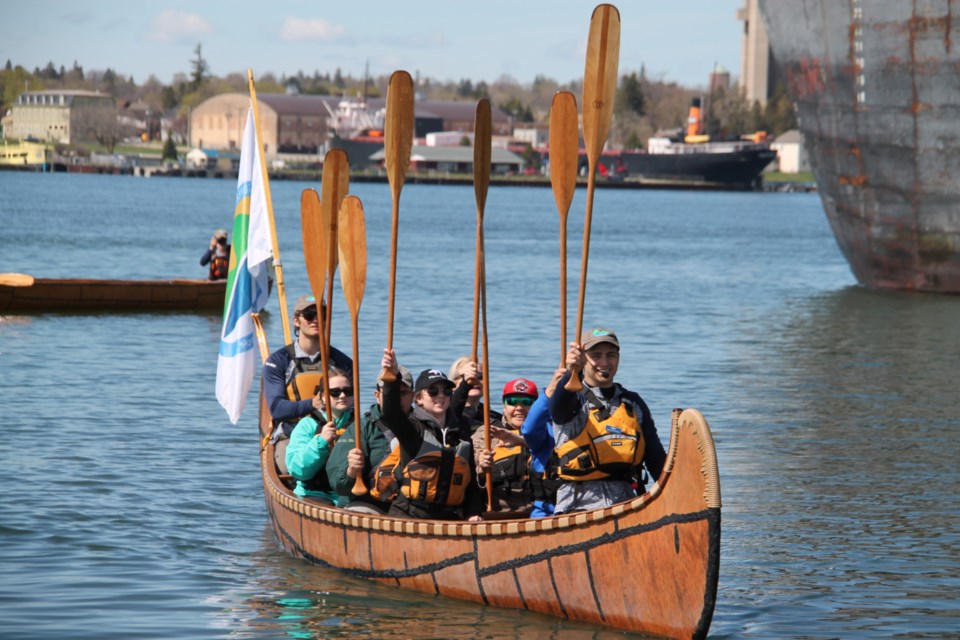“Tourism was hit first, hit hardest.”
That from David MacLachlan, Sault-based Destination Northern Ontario executive director, speaking to a group of concerned Northern Ontario tourism industry operators in a virtual presentation held Tuesday.
“The industry has been under extreme duress since the start of the pandemic. We’ve been operating under some form of lockdown or restriction for almost 16 months,” MacLachlan said.
Though MacLachlan said he is encouraged by the COVID-19 vaccine rollout and a decreasing number of COVID-19 cases, he and his fellow tourism officials are calling on the federal government to reopen the Canada-U.S. border to fully vaccinated Americans and other international travellers July 22.
Much of the Northern Ontario tourism industry is dependent on American anglers and hunters heading north of the border to enjoy what the region offers them.
Campgrounds, parks, hotels, motels and cabin rentals, along with sports events and festivals, have taken a devastating blow due to the pandemic-induced border closure.
Typically, one million Americans visit Northern Ontario annually and spend half a billion dollars, generating $150 million in taxes for the three levels of government, MacLachlan estimated.
While the federal government has encouraged northerners to ‘visit their own backyard’ in terms of tourism as a result of closed borders, MacLachlan said “there’s just not enough anglers in Ontario to replace anglers coming from the U.S.”
“We have a short season. We have three months left to this season at this point. While (government assistance) programs have been helpful, we know from the research we did last winter that there’s been a 91 per cent revenue drop in the resource based tourism sector, and that goes as high as 97 per cent in the northwest.”
“A lot of operators have exasperated and used all their personal resources, their business resources and on average have taken on more than $100,000 worth of new debt,” MacLachlan said.
“This sector is close to my heart. My family’s been in the business for 65 years...I think everyone feels that now’s the time to get started,” MacLachlan said, speaking to SooToday.
Noting that the U.S. economy is beginning to reopen and that infection rates are lowering in Ontario, MacLachlan said “what we’re asking for is not automatic extensions of these border closures, but let’s put some effort behind opening it as opposed to just putting the decision off and off and off. That’s not helping anyone.”
“I have 75 per cent international travel (most of them from U.S. tourists)...I’ve gone from 95 per cent occupancy to 15 per cent,” said Susan Crane, Cranes Lochaven Wilderness Lodge owner/operator (French River, Ontario), adding her U.S. customers have indicated their wish to visit her lodge, willing to be tested for COVID at the border.
Crane said many of her U.S. customers are holding their reservations for this summer, hoping the border will open in July.
“We don’t know if the border is going to open for August. We’re hoping it does. If it doesn’t, our numbers will be significantly less (for the second consecutive season) with major revenue loss,” Crane said.
“The monthly border deal (Canada’s current practice of extending the border closure for another month at a time) has got to quit,” said Carol Anniuk, Young’s Wilderness Camp owner/operator in the Lake of the Woods area.
While Anniuk said she understands health concerns over COVID-19, she said she is “exhausted” with the wait for the border to reopen despite having observed COVID restrictions.
“The lack of a long term plan from the government makes me feel like I’m dying a slow death,” Anniuk said, stating that while she is not calling for the border to be wide open to non-vaccinated Americans, she feels vaccinated Americans and other international tourists should be allowed in to enjoy northern Ontario tourism.
“I know the government’s answer to this will be the possibility of the Delta variant, but I also know the vaccines we’re using seem to be beneficial in fighting this also. There are always going to be variants. We must learn how to live with COVID. We can’t live in a bubble forever,” Anniuk said.
Federal government aid, much of it in the form of low interest loans, have been made available to tourist industry operators throughout the pandemic.
However, Laurie Marcil, North Bay-based Nature & Outdoor Tourism Ontario (NOTO) executive director, said “right now, what we’re asking for is that more of those loans be made forgivable. Originally there was a portion of those loans that were made forgivable.”
“Now that we’re facing a second season of massive losses, we’re looking for more of those loans to be made forgivable and we’re also looking for longer timelines on when to pay those loans back if they’re not going to make more of them forgivable,” Marcil said.
Optimistically, Sault-based David MacLachlan said “this sector is one that will rebound quickly, but to do that, the border needs to open.”
“We really need the government to hear these stories. This industry cannot sustain any further closures. We have two to three months left for most of these businesses to generate revenue in this season. Many of them have not had any revenue since 2019,” Marcil said.
Marcil pointed to projections that 70 per cent of Ontario residents will be fully vaccinated by July 19, 75 per cent of all Canadians by August 1 as an impetus to reopen the border.
“The time is now,” Marcil said.
Marcil said correspondence expressing concern from Northern Ontario tourism industry operators, along with recommendations, has been sent to the federal government.



